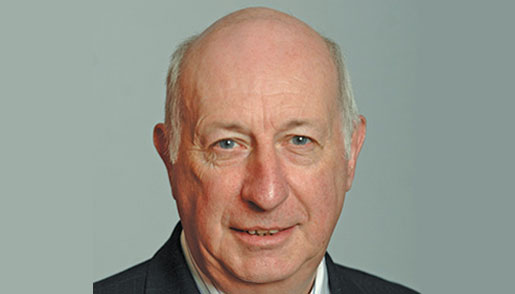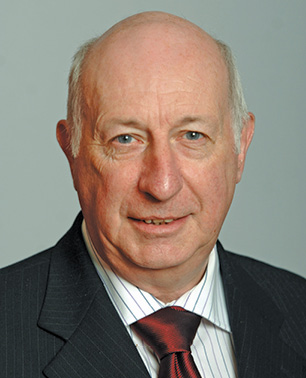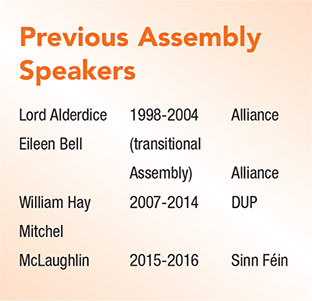Contentious, so to speak

 Following the use of a petition of concern to protect the Speaker of the Assembly from a backlash in the aftermath of his recent performance in the role, agendaNi analyses the potential for the position to be a renewed bone of contention in forming a new Assembly.
Following the use of a petition of concern to protect the Speaker of the Assembly from a backlash in the aftermath of his recent performance in the role, agendaNi analyses the potential for the position to be a renewed bone of contention in forming a new Assembly.
If, or when, the Assembly resumes in Northern Ireland, an additional stumbling block to be navigated by the parties will concern the incumbency of the Speaker. The position of the Speaker (formerly known as the Presiding Officer) rests in section 39 of the Northern Ireland Act 1998. The election of a new Speaker is the first order of business for a new Assembly after an election and the office is held until the election of a successor.
Notably, a nominated speaker can only be elected with cross-community support. In recent years the DUP and Sinn Féin have been accused of a “carve up” of the position. The “carve up” perception comes from recent behind-the-scenes deals between Sinn Féin and the DUP to control the role. In 2014, Sinn Féin’s Mitchel McLaughlin became the first nationalist to hold the position after the DUP’s William Hay retired and it is believed that Principal Deputy Speaker Catríona Ruane would have replaced current Speaker Robin Newton at some point during the previous Assembly term.
However, such an agreement is in jeopardy following March’s election because of recent controversy surrounding Robin Newton’s position. In January, Sinn Féin tabled a motion of no confidence in Newton, with the backing of almost all the parties in the Assembly over his facilitation of Arlene Foster’s statement on the Renewable Heat Incentive (RHI), despite an absence of consent from Martin McGuinness, her joint office holder.
The chief characteristics of the office of Speaker are authority and impartiality and Speakers are required to step away from party politics during their term, witholding comment on political matters or issues of Government policy. The RHI debate brought the impartiality of the Speaker into sharp focus for the majority of Stormont parties and it did not help that prior to this the DUP MLA had received criticism over his handling of questions surrounding the Charter NI funding controversy and an initial failure to declare an interest while dealing with Assembly business on the matter.
Newton was spared a vote of no confidence because the DUP chose to deploy the petition of concern mechanism, a move that was described as “insulting” by Sinn Féin. The lingering tension means that unless the two major parties include a deal on the Speaker position within the initial negotiations to form a new government, it is unlikely that either will give the cross-community support required by the other’s candidate. The likelihood is that the role would need to revert to one of the smaller parties, however, with Alliance, the SDLP and the UUP all expressing concern over Robin Newton’s role, whether the DUP would be prepared to support one of their candidates remains unclear.
Powers and duties of the Speaker
• A scrutiny role in relation to the competence of legislation prior to the first and final stages of a Bill;
• a requirement to forward copies of all Bills to the Northern Ireland Human Rights Commission;
• the selection of amendments to Bills for debate at consideration stage;
• requests of Royal assent on completion of all stages of a Bill;
• receives resignations from all Assembly positions above MLA;
• administration of oaths and presiding at meetings of the Northern Ireland Assembly Commission;
• representational duties and receiving high profile visitors to Parliament Buildings; and
• maintaining legislature links with Westminster and the devolved regions.






